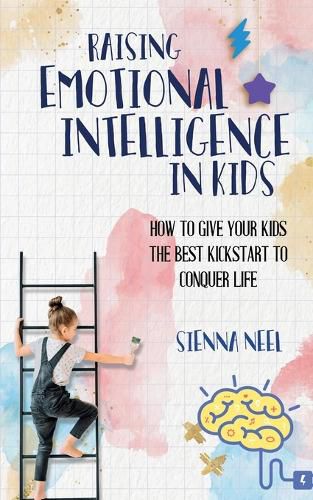Raising Emotional Intelligence in Kids
Sienna Neel

Raising Emotional Intelligence in Kids
Sienna Neel
This title is printed to order. This book may have been self-published. If so, we cannot guarantee the quality of the content. In the main most books will have gone through the editing process however some may not. We therefore suggest that you be aware of this before ordering this book. If in doubt check either the author or publisher’s details as we are unable to accept any returns unless they are faulty. Please contact us if you have any questions.
Feelings are not meant to be pushed down or dismissed. Here’s how to make sure your kids know what to do with theirs: If you’re like most parents, one of your primary concerns about your child, aside from their health and safety, is how you can prepare them for adulthood.
There are the usual concerns about meeting the milestones for their age, the frequent comparisons with their peers, and the rush to buy every book and toy that will help them be smarter, stronger, or faster.
We worry about their physical and mental prowess because these are the typical qualities that we’re taught to build up in our children so that they grow up to be successful.
But less lauded abilities, like resilience, patience, and empathy, also play a significant role in a child’s future success.
In fact, these abilities, and other qualities associated with emotional intelligence, are a greater predictor of future success than having a high IQ.
Fortunately, emotional intelligence is something that can be taught and developed, and the ideal time to do it is while your kids are still young.
If you need help navigating this aspect of your child’s development, you can get some direction from this practical guide that will show you the methods for building emotional intelligence.
In Raising Emotional Intelligence in Kids, you will discover:
How to help your child identify, understand, and make sense of their emotions when they are still too young to verbalize them well
Your parenting type and how you could be affecting your child’s self-esteem and outside relationships
The #1 thing to keep in mind to keep you from losing your mind when your child is having yet another tantrum
9 effective responses to misbehavior that don’t involve punishment
Why you should stop asking your child, Why? , and what to ask instead to get more than a one-word response
The essential trait that will enable your child to face any obstacle that comes their way, even when you’re not there to help them
How to get your child to respond peacefully but forcefully to a bully
What you should never say to your child when talking about a sensitive issue
Easy calming exercises you can do with your child to develop mindfulness and help them deal with fluctuating emotions
And much more.
We are all born with our natural inclinations and personalities. Some kids will be more extroverted and high-energy, while others will be shy and sensitive.
But no matter how rowdy, ill-tempered, or withdrawn your child is, there’s always a way to help them handle their emotions.
You may not see results right away, but with constant practice and guidance, you will be able to see the little improvements in how they respond to you and to unpleasant situations.
Give your child the tools and support they need to face the highs and lows of life, and set them on the path from moody child to emotionally healthy adult.
If you want to prepare your child for a successful future, not just in their career but also in their personal life and relationships, then scroll up and click the Add to Cart button right now.
This item is not currently in-stock. It can be ordered online and is expected to ship in 7-14 days
Our stock data is updated periodically, and availability may change throughout the day for in-demand items. Please call the relevant shop for the most current stock information. Prices are subject to change without notice.
Sign in or become a Readings Member to add this title to a wishlist.


